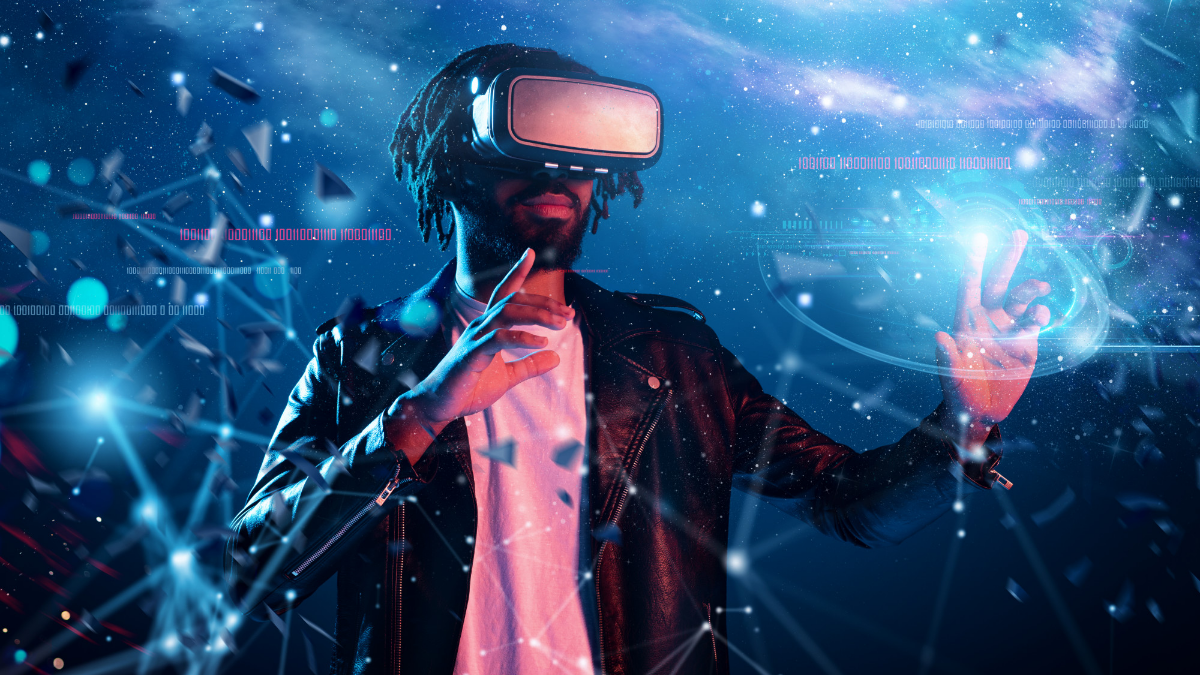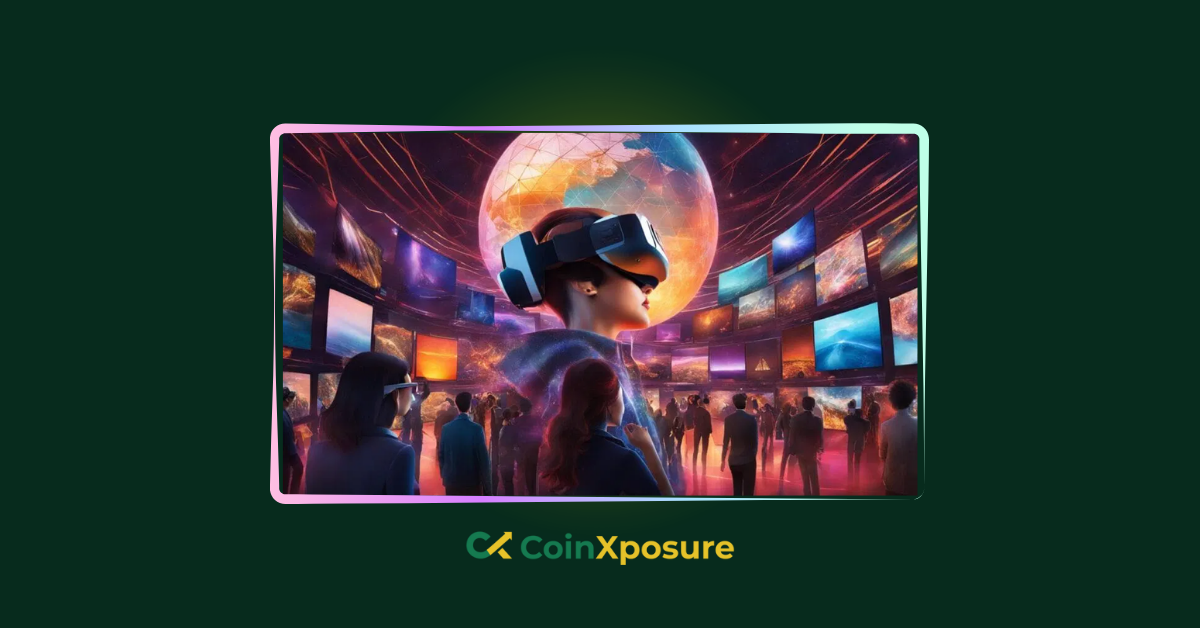With advancements in technology and the growing popularity of virtual reality, many companies are developing Metaverse games that offer immersive and engaging experiences. In this article, we will highlight the Metaverse games to watch and the companies driving the virtual world forward.
We will examine the unique features and gameplay of the most promising Metaverse games, compare their potential impact on the gaming industry, and analyze the key players in the Metaverse gaming industry, including their vision and strategy, strengths, and weaknesses.
We will also discuss the latest trends shaping the Metaverse gaming industry, such as NFTs and blockchain technology, and the challenges facing the industry, such as scalability and interoperability.
By the end of this article, readers will have a better understanding of the potential of Metaverse gaming and its impact on the future of the gaming industry.
Current State of Metaverse Gaming
The Metaverse gaming industry is still in its early stages, but it is growing rapidly. The concept of the Metaverse has been around for decades, but recent advancements in technology have made it possible to create immersive virtual worlds that offer a wide range of experiences.
Metaverse games typically allow players to create avatars and interact with other players and digital objects in a virtual world. These games often have social, economic, and political systems that mimic the real world.
Some of the most popular Metaverse games include Second Life, Roblox, and Fortnite. Second Life, which was launched in 2003, is one of the oldest Metaverse games and has a dedicated user base.
Roblox, which was launched in 2006, is a popular game creation platform that allows users to create their own games and experiences. Fortnite, which was launched in 2017, is a popular battle royale game that has expanded into a Metaverse with concerts, movie screenings, and other events.
The Metaverse gaming industry is attracting significant investment from both established gaming companies and new startups. For example, Epic Games, the company behind Fortnite, recently raised $1 billion in funding to develop its Metaverse ambitions.
Other companies, such as Decentraland and The Sandbox, are developing Metaverse games that are built on blockchain technology, allowing players to own and trade digital assets.
The Metaverse gaming industry is still in its early stages, but it has the potential to be a major force in the gaming industry in the coming years. As technology continues to improve, we can expect to see even more immersive and engaging Metaverse games that offer a wide range of experiences for players.
Metaverse Games to Watch
Here are some of the Metaverse games to watch:
- Decentraland
- The Sandbox
- Roblox
- VRChat
- Minecraft
Decentraland
Decentraland is a blockchain-based virtual world that allows users to create, experience, and monetize content and applications. The world is divided into parcels of land, which can be purchased and developed by users. Decentraland allows users to create and trade unique digital assets, such as virtual real estate and wearable items.
The Sandbox
The Sandbox is a decentralized virtual gaming platform that allows users to create and monetize their own gaming experiences using blockchain technology. Users can create their own 3D voxel games and experiences, as well as trade and monetize them using non-fungible tokens (NFTs).
Roblox
Roblox is a game creation platform that allows users to create and play their own games. With over 200 million monthly active users, Roblox has become one of the most popular Metaverse games. Roblox allows users to create and trade virtual items, such as clothing, accessories, and animations.
VRChat
VRChat is a social virtual reality platform that allows users to create, share, and explore virtual worlds. Users can create their own avatars, chat with other users, and participate in a wide range of activities, such as games and virtual events.
Minecraft
Minecraft is a sandbox video game that allows users to build and explore virtual worlds made up of blocks. While Minecraft is not strictly a Metaverse game, it has a large and dedicated user base that has created a wide range of community-driven experiences and virtual worlds.
These Metaverse games are just a few examples of the many exciting and innovative virtual worlds that are currently being developed.
Each game has its own unique features and gameplay, but all of them offer players the opportunity to experience immersive and engaging virtual environments.
As the Metaverse gaming industry continues to evolve, we can expect to see even more exciting and innovative games in the future.
Companies Driving the Virtual World Forward
Here are some of the companies that are driving the virtual world forward:
- Epic Games
- Roblox Corporation
- Decentraland
Epic Games
Epic Games is the company behind the hugely popular battle royale game Fortnite, which has expanded into a Metaverse with concerts, movie screenings, and other events.
The company recently raised $1 billion in funding to develop its Metaverse ambitions and has stated that it wants to create a “real-time 3D social medium” that connects people across different devices and platforms.
Facebook is one of the largest social media companies in the world and is also investing heavily in the Metaverse. The company has stated that it wants to build a “metaverse product” that allows people to interact with each other and digital objects in a virtual world.
Facebook has already launched Horizon Workrooms, a virtual reality platform designed for remote work and collaboration.
Roblox Corporation
Roblox Corporation is the developer behind the game creation platform Roblox, which has become one of the most popular Metaverse games with over 200 million monthly active users. The company recently went public and has stated that it wants to expand into new markets, such as education and virtual concerts.
Decentraland
Decentraland is a blockchain-based virtual world that allows users to create, experience, and monetize content and applications. The company has raised significant funding and has partnered with a wide range of companies and organizations to develop its Metaverse platform.
These companies are just a few examples of the many organizations driving the development of the Metaverse. Each company has its own vision and strategy for the Metaverse, but all are focused on creating immersive and engaging virtual environments that allow people to interact with each other and digital objects in new and exciting ways.
As the Metaverse continues to grow, we can expect to see even more companies enter the space and compete to create the most innovative and engaging Metaverse experiences.
Key Trends Shaping the Metaverse Gaming Industry
Here are some of the key trends shaping the Metaverse gaming industry:
- Integration with blockchain technology
- Socialization and community building
- Immersive experiences
- Cross-platform compatibility
- In-game monetization
Integration with blockchain technology
The integration of blockchain technology is one of the key trends shaping the Metaverse gaming industry. Blockchain allows for secure and transparent transactions of virtual assets, such as virtual real estate, avatars, and in-game items.
This enables players to own and trade virtual assets in a decentralized manner, giving them greater control over their virtual lives and experiences.
Socialization and community building
Another trend shaping the Metaverse gaming industry is the focus on socialization and community building. Many Metaverse games are designed to be social experiences, with players able to interact with each other, form groups and communities, and participate in shared activities.
This focus on socialization and community building has been driven by the pandemic and the increased need for socialization and connection in a virtual environment.
Immersive experiences
Immersive experiences are another key trend shaping the Metaverse gaming industry. Players want to feel fully immersed in the virtual worlds they inhabit, with realistic graphics, sound, and haptic feedback.
Advances in virtual reality (VR) and augmented reality (AR) technologies are helping to create more immersive experiences, allowing players to feel like they are really inside the virtual world.
Cross-platform compatibility
As the Metaverse gaming industry grows, there is an increasing need for cross-platform compatibility. Players want to be able to access their virtual worlds from different devices and platforms, such as PCs, consoles, and mobile devices.
This requires developers to create games that are compatible with a wide range of devices and platforms, allowing players to seamlessly switch between them.
In-game monetization
In-game monetization is a key trend shaping the Metaverse gaming industry. Many Metaverse games allow players to buy and sell virtual assets, such as virtual real estate, avatars, and in-game items, using real-world currencies or cryptocurrencies.
This has created new opportunities for developers and players alike, with some players even earning a living from trading virtual assets in Metaverse games.
Challenges facing the Metaverse gaming industry
Here are some of the challenges facing the Metaverse gaming industry:
- Technical limitations
- Interoperability
- User adoption
- Security and privacy
- Regulation
Technical limitations
One of the biggest challenges facing the Metaverse gaming industry is technical limitations. Creating a fully immersive, interactive virtual world requires significant computing power, bandwidth, and storage capabilities.
This can limit the scope and scale of Metaverse games and make them difficult and expensive to develop.
Interoperability
Interoperability is another challenge facing the Metaverse gaming industry. As the number of Metaverse games and platforms grows, there is a need for interoperability between them, allowing players to move between different virtual worlds and bring their virtual assets with them.
Achieving interoperability requires the development of common standards and protocols, which can be difficult to agree upon and implement.
User adoption
User adoption is another challenge facing the Metaverse gaming industry. While Metaverse games have gained a significant following, they are still a niche market compared to traditional video games.
Many potential users may be hesitant to try Metaverse games, either due to technical limitations, lack of awareness, or concerns about privacy and security.
Security and privacy
Security and privacy are also major concerns in the Metaverse gaming industry. The virtual assets and identities of players are valuable, and they need to be protected from hacking, theft, and fraud.
Ensuring the security and privacy of Metaverse games requires the development of robust security protocols and technologies, as well as the education of users on best practices for staying safe in virtual environments.
Regulation
As Metaverse games become more popular and valuable, there is a growing need for regulation. Many countries and jurisdictions are grappling with how to regulate virtual assets and currencies, and how to ensure that Metaverse games are safe and fair for all players.
This requires collaboration between governments, game developers, and players to create a regulatory framework that protects players and promotes innovation in the Metaverse gaming industry.
Conclusion
The Metaverse gaming industry is experiencing rapid growth and innovation, driven by advances in technology and a growing demand for immersive, social experiences in virtual worlds.
Key trends such as integration with blockchain technology, socialization and community building, immersive experiences, cross-platform compatibility, and in-game monetization are shaping the future of the industry.
However, the Metaverse gaming industry also faces significant challenges, including technical limitations, interoperability, user adoption, security and privacy concerns, and regulation.
Addressing these challenges will require collaboration between developers, players, governments, and other stakeholders to ensure that the Metaverse gaming industry continues to grow and evolve in a safe and sustainable way.
Despite these challenges, the potential benefits of the Metaverse gaming industry are significant, with the potential to create new social and economic opportunities for players and developers alike. As such, it is likely that the Metaverse gaming industry will continue to drive innovation and growth in the years to come.












